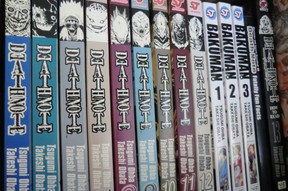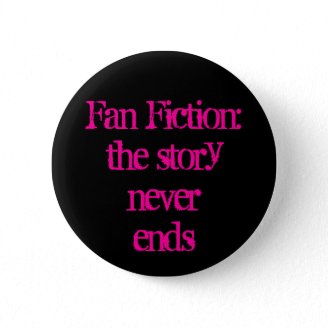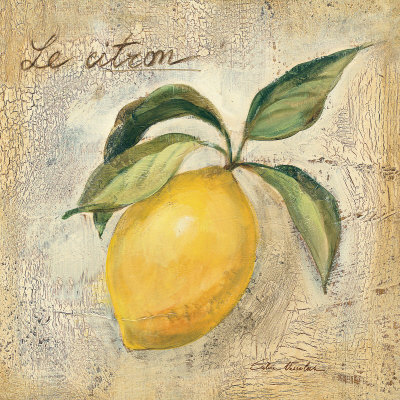 So many budding authors start with fan fiction. The majority had never contemplated writing stories beforehand.
So many budding authors start with fan fiction. The majority had never contemplated writing stories beforehand.
The entry point is extremely easy, especially on the internet. There are multiple channels for publishing fan-made stories on-line.
Wherever the fandom meets, in forums, on art sites, or in bespoke fan fiction websites, it's as simple as clicking a couple of buttons and pasting words into a box.
Communities build up around them, so there's plenty of peer encouragement too. If everyone else is doing it, then you might as well give it a shot.
Announcing that this is your first ever story will have proud club members clucking around you, like a mother with baby's first painting. And if you do attract a troll, then the rest of the community will take them down. But only for the first story, or until your noob status wears off.
Writing for the fandom allows ample opportunity for sampling and experimenting with different literary genres.
There's only so far you can go with the original story before a sense of sameness builds up. Therefore one way to stand out is to keep the plot and characters, but rewrite it within a different tradition of story-telling, or in the style of *insert famous author*.
The community may help here. Fans and fandom clubs are always holding competitions - write an Easter story; or make it sound like a Disney film! (Always interesting, when your base material comes from one of the darkest manga stories ever written.)
Fan fiction has an unfair reputation for being too easy. The characters and universe are handed to you by the original author. Therefore, observers conclude, the rest must be 'color by numbers' for writers.
As I've already outlined above, the reality is that it's harder. But those dipping their toe into the writing pool for the first time don't know this. They've heard the hype; and they have no experience of going it alone.
I should clarify that fan fiction can be extremely easy, but only if corners are cut. If the fanfic author announces from the outset that this is all a bit of fun, experimenting with an alternative universe, then all bets are off.
It can also be a simple piece of formulaic story-telling, if the writer merely retells canon events in their own words. But their readers have been here before (with 90% of other fan fiction writers). It's not only been done to death (particularly the most popular scenes), but an original already exists, immutably better by default.
By taking the easy route, these writers won't build a substantial readership. The curious will come, then drift away.
Nevertheless, it is writing. It's doing so in the deep end, where the sharks are lurking behind the pretty shoals. Those who make it in fan fiction will eventually turn to original writing. They will find it much easier.
They will also now have experience in word-crafting and a vast archive of reader feedback. This author knows what is a crowd-pleaser; and what is universally disdained. This is invaluable knowledge, which can then be transferred to other, potentially lucrative, avenues of writing.


 For the uninitiated, it must sound like a case of monkey see, monkey do.
For the uninitiated, it must sound like a case of monkey see, monkey do. 


 In 2008, I read the Death Note manga.
In 2008, I read the Death Note manga.













 Before 2008, I had written a lot of original fiction. The reason that you have never read it is because a) most of it is juvenile crap; and b) the vast majority was written before I had ever seen a computer.
Before 2008, I had written a lot of original fiction. The reason that you have never read it is because a) most of it is juvenile crap; and b) the vast majority was written before I had ever seen a computer.




 So many budding authors start with fan fiction. The majority had never contemplated writing stories beforehand.
So many budding authors start with fan fiction. The majority had never contemplated writing stories beforehand.




 There are two sides to every story: the writing and the reading. Those doing the latter are extremely important, and they are in the fandoms in droves.
There are two sides to every story: the writing and the reading. Those doing the latter are extremely important, and they are in the fandoms in droves.


 You can't see her, but she's always been here. Her influence is felt throughout my
You can't see her, but she's always been here. Her influence is felt throughout my 

 The squee-ing was for real this time.
The squee-ing was for real this time. 

















 St Tydecho's Churches in West Waleson 09/03/2014
St Tydecho's Churches in West Waleson 09/03/2014
 Goodies for an Outlander Premiere Partyon 03/06/2015
Goodies for an Outlander Premiere Partyon 03/06/2015
 Holocaust Memorial Day Interview with Rainer Höss, Grandson of Rudolf Architect of Auschwitzon 01/24/2015
Holocaust Memorial Day Interview with Rainer Höss, Grandson of Rudolf Architect of Auschwitzon 01/24/2015
 Romantic Valentine Gifts for an Outlander Fanon 01/16/2015
Romantic Valentine Gifts for an Outlander Fanon 01/16/2015



Comments
That is so much easier, I agree! But it's the restrictive nature which has me fascinated with fan fiction, because it's a challenge. Writing stories just as they download is certainly the way forward, if you want to publish though. :)
I guess I would never write fan fiction because I would feel limited. I like the way stories form in my head and I just write them as they download. ;)
It's a fascinating world to be in; at least it's kept me absorbed for the best part of half a decade! Enjoy your sojourn!
I'm looking forward to the lot of stuff to say! <3 Thanks for the links. I'll get them added to the list.
Update: Both are now added. Thanks!
I have lots of stuff to say, but for now I'll point you in the direction of both tumblr.com and archiveofourown.org, which are both huge outlets for fanfiction in other fandoms. AO3 is still in beta, yet is nonetheless the main site for fanfiction in certain fandoms. :D
Ok, yes, i can see the links between Rebecca and Jane Eyre. That could work.
*evil grin* Welcome to the dark side. We have cookies.
Can you see now why it fascinates me so much? I can write original fiction. I remember making a 'book' and taking it into the playground, when I was 7 or 8. I'm 40 on Thursday, so you can see how long I've been at it.
But fan fiction is something different. It has so many elements to have to juggle. I absolutely love writing it for the sheer mental exercise!
You should try it with your character. See how you get on.